When we think of Syria, there comes to mind the verse of the Book of Lamentations: “Vast as the sea is your ruin; who can heal you?” (2:13). Those words refer to the sufferings of Jerusalem, but they also make us think of the suffering endured by the Syrian people in these twelve years of violent conflict. If we consider the number of the dead and wounded, the destruction of entire quarters and villages, as well as important infrastructures, including healthcare institutions, it is natural to ask: “Syria, who can now heal you?”
International observers tell us that the crisis in Syria continues to be one of the most serious worldwide, in terms of destruction, growing humanitarian needs, social and economic collapse, and poverty and famine at dire levels.
Recently, I was given a gift, a work by an artist who, inspired by a photograph with real faces, portrayed a Syrian father, physically exhausted, carrying his son on his shoulders. He was just one of some fourteen million internally displaced persons and refugees. That is more than half of the Syrian population prior to the conflict. It was a powerful image of the sufferings experienced by the Syrian people.
In the face of such immense suffering, the Church is called to be a “field hospital” and to heal wounds both physical and spiritual. We think of the words of the Gospel: “That evening, at sundown, they brought to [Jesus] all who were sick and possessed with demons. The whole city was gathered around the door. And he cured many who were sick with various diseases” (Mk 1:32-34; cf. Lk 4:40). It is the Lord who heals.
From the time of the Apostles, the Church has remained faithful to the mandate she has received from Jesus: “Cure the sick, raise the dead, cleanse the lepers, cast out demons. You have received without payment; give without payment” (Mt 10:8). In the Acts of the Apostles we read that “they carried out the sick into the streets and laid them on cots and mats, in order that Peter’s shadow might fall on some of them as he came by” (5:15) and might heal them.
Mindful of this legacy, I have frequently encouraged priests, especially on Holy Thursday, to touch the wounds, the sins, the anguish of their people (cf. Homily, Chrism Mass, 18 April 2019). To touch them. I have also encouraged all the faithful to touch the wounds of Jesus, that is, the many problems, difficulties, persecutions, and infirmities of those who suffer (cf. Regina Caeli, 28 April 2019; Evangelii Gaudium, 24), and the wars.
Dear friends, your project – “Open Hospitals” – is committed to supporting the three Catholic hospitals that have operated in Syria for a hundred years, as well as four walk-in clinics. This initiative came about with the patronage of the Dicastery for Promoting Integral Human Development and is supported by the generosity of Church-related institutions – The Papal Foundation and several Bishops’ Conferences, and some government agencies – Hungarian and Italian –Catholic humanitarian institutions and a number of generous individuals.
Your programme is precisely that of “Open Hospitals”. Open to those who are sick and poor, without distinction of ethnic or religious affiliation. This is the hallmark of a Church that seeks to be a home with open doors, a place of human fraternity. In our charitable institutions, people, and above all the poor, must feel “at home” and experience a climate of dignified welcome. Then, as you have rightly emphasized, two things will result: people’s bodies will be cared for and the social fabric will be mended by fostering the exemplary coexistence between different ethnic and religious groups that is characteristic of Syria. In this regard, it is significant that the many Muslims assisted by your hospitals are the most grateful.
Your initiative, together with others that have been promoted by the Church in Syria, blooms, as Saint John Paul II said, from the “creativity of charity” (Novo Millennio Ineunte, 50).
Today, you gave me a beautiful icon of Jesus the Good Samaritan. The man in the Gospel parable, beaten, robbed and left half-dead by the side of the road, can serve as another tragic image of Syria, beaten, robbed and abandoned for dead on the roadside. Yet not forgotten or abandoned by Christ, the Good Samaritan, and by so many other good Samaritans: individuals, associations and institutions. Several hundred of these good Samaritans, including several volunteers, have lost their lives helping their neighbours. Our gratitude goes to all of them.
In the Encyclical Fratelli Tutti, I wrote that, “The story of the Good Samaritan is constantly being repeated. We can see this clearly as social and political inertia are turning many parts of our world into a desolate byway, even as domestic and international disputes and the robbing of opportunities are leaving great numbers of the marginalized stranded on the roadside” (No. 71). And I asked everyone to consider that “all of us have a responsibility for the wounded, those of our own people and all the peoples of the earth” (No. 79).
In the face of so many serious needs, we experience how very limited are our possibilities for intervening. We feel a bit like Jesus’ disciples, faced with an enormous crowd that had to be fed: “We have only five barley loaves and two fish; but what are they among so many?” (Jn 5:6-9). A drop of water in the desert, we might say. Yet even the rocky Syrian desert, after the first spring rains, is clothed in a blanket of green. So many small drops, so many blades of grass!
Dear friends, I thank you for your work and I offer you my heartfelt blessing. Keep pressing forward! May the sick be cured, hope be reborn, and the desert blossom! I ask this of God, for you and with you. And I ask you too, please, remember to pray for me. Thank you.
(After the blessing)
This image, of the Syrian father fleeing with his son, reminded me of when Saint Joseph had to flee to Egypt. He did not go in a carriage, no, he went like this, fleeing precariously. The original of this image was given to me by the artist, who is from Piedmont. I want to offer it to you so that, looking at this Syrian father and his son, you can think of this everyday flight into Egypt, of this people that is suffering so much. Thank you.
Link to the speech
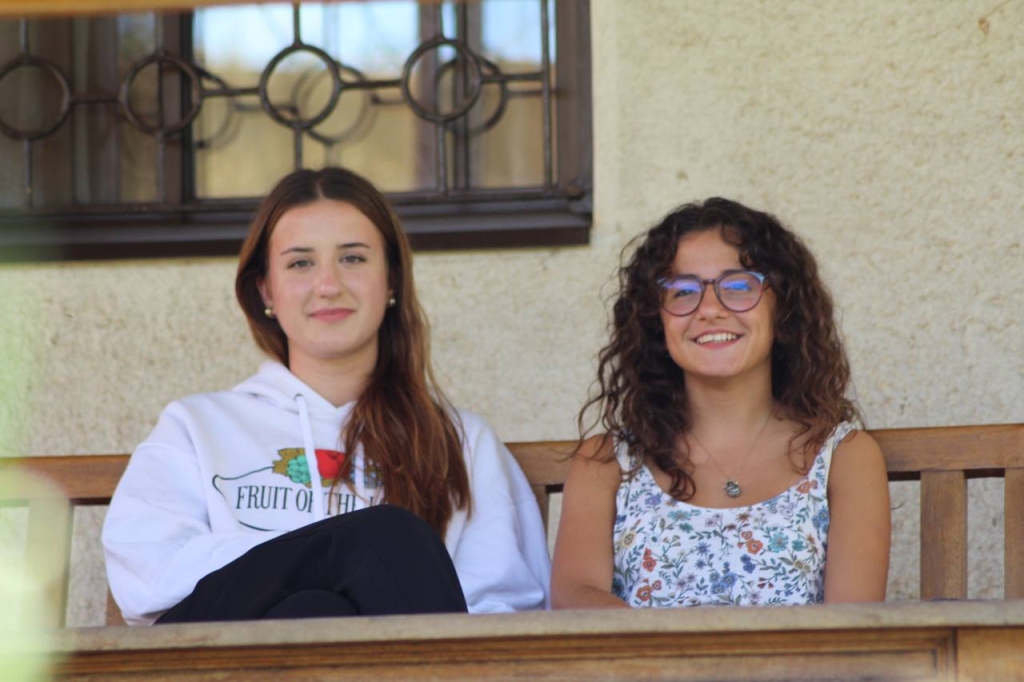
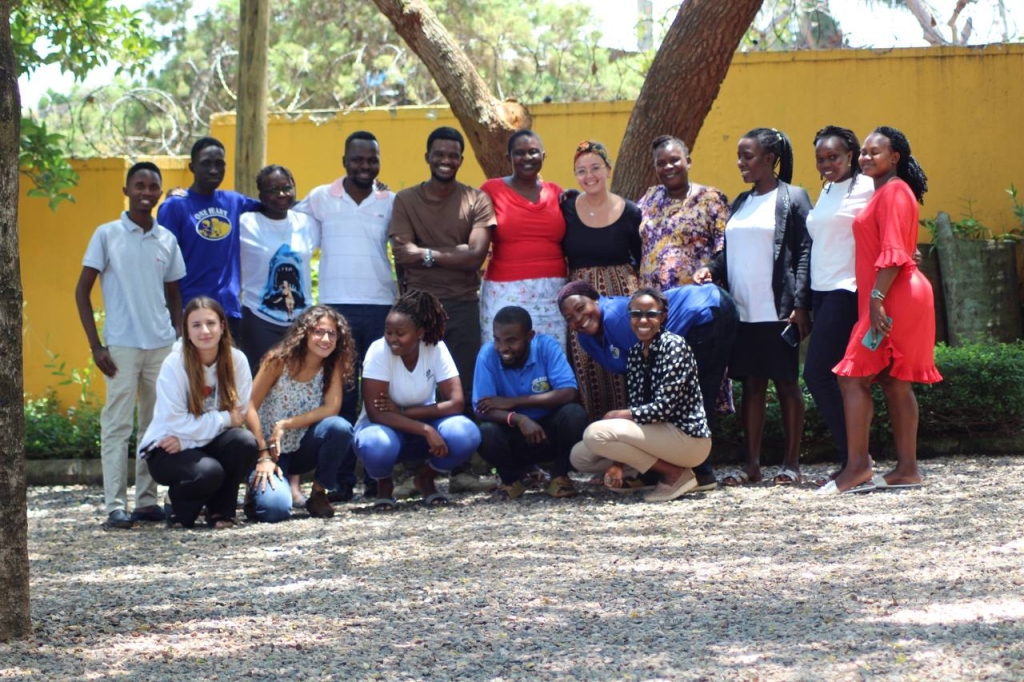

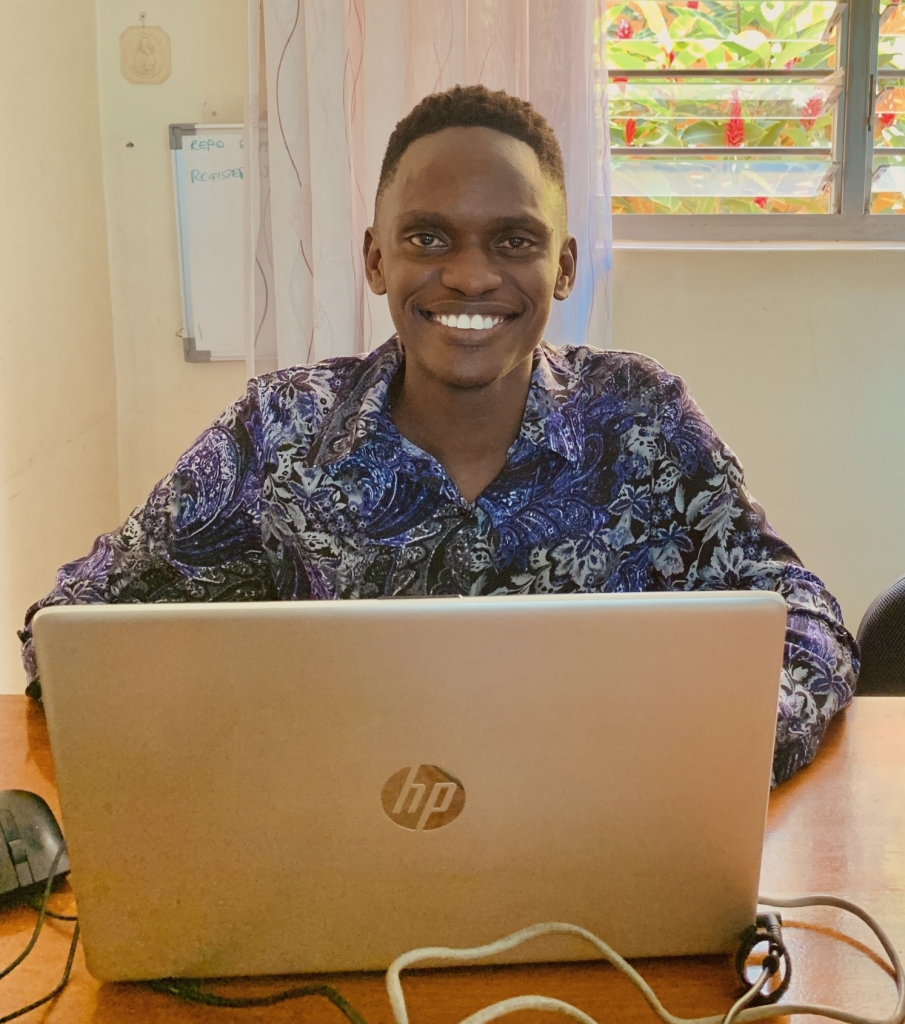
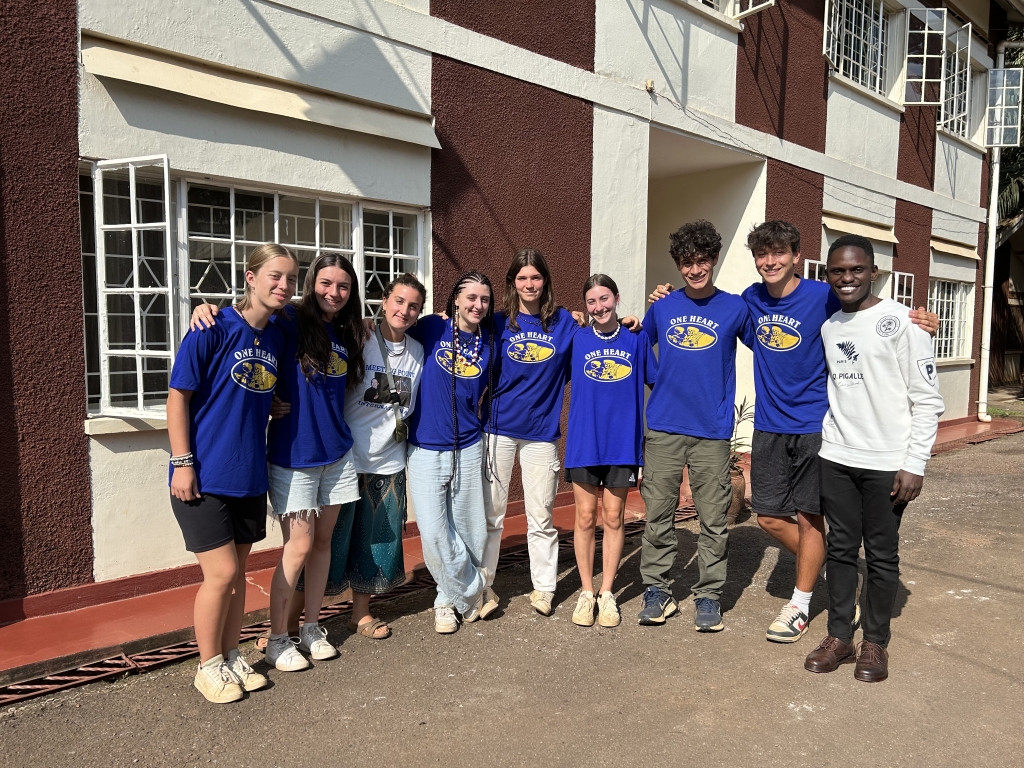
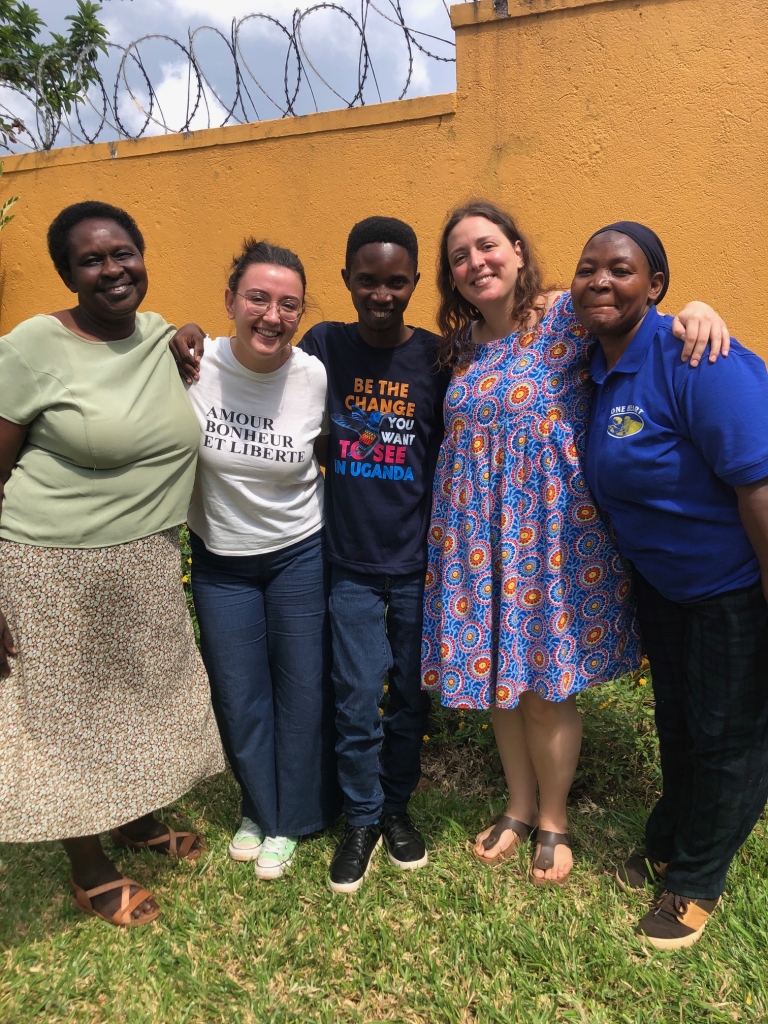
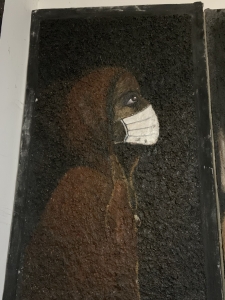
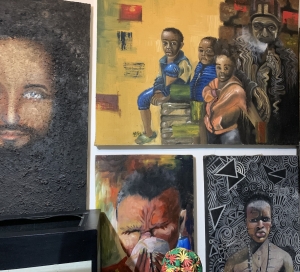
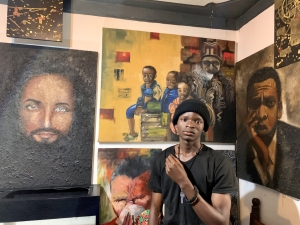
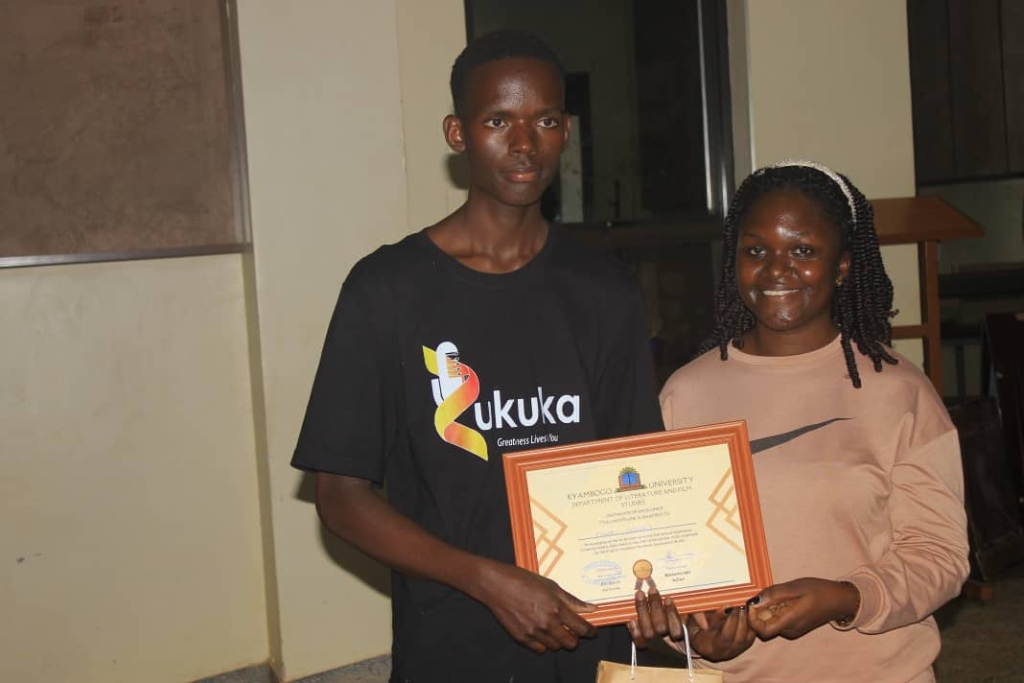
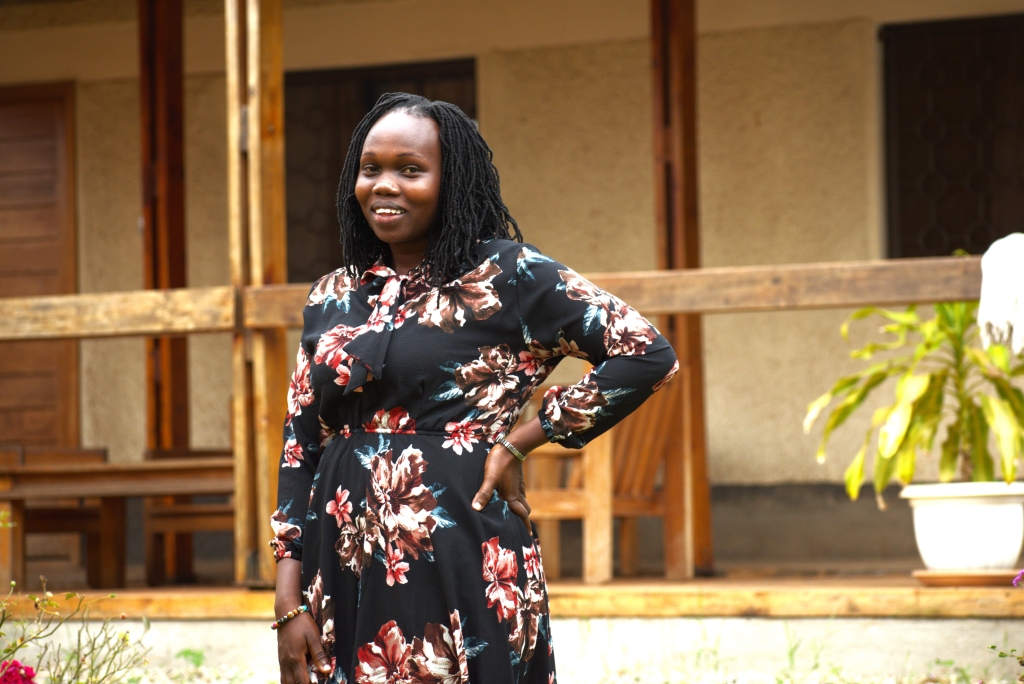
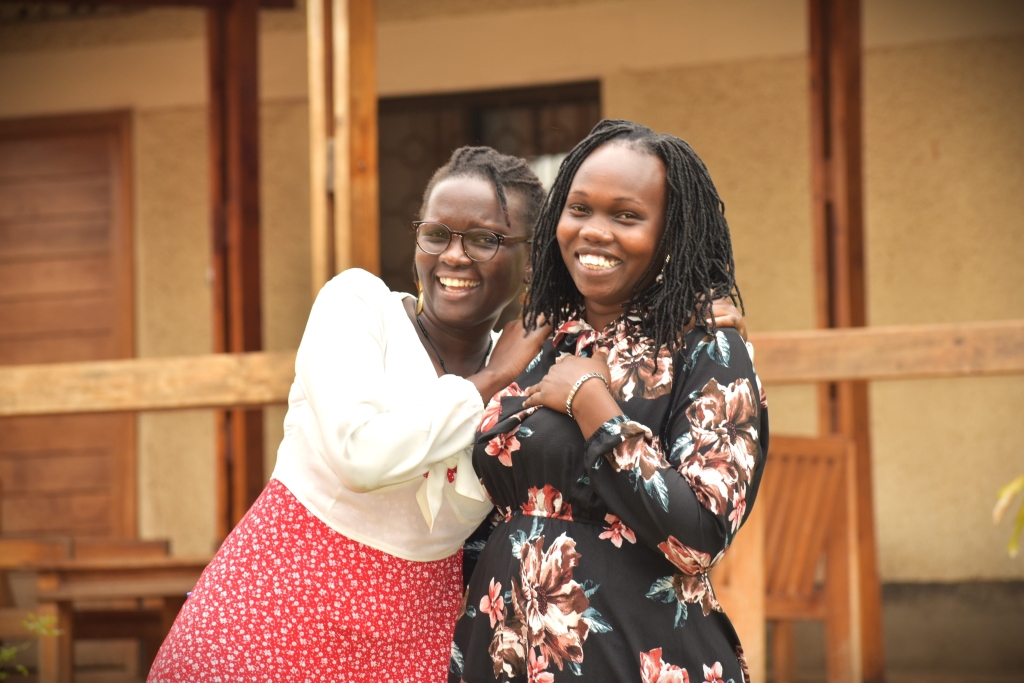
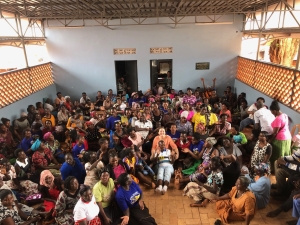
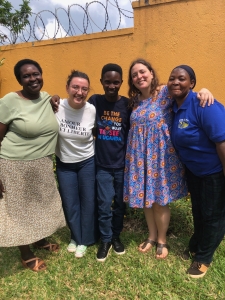
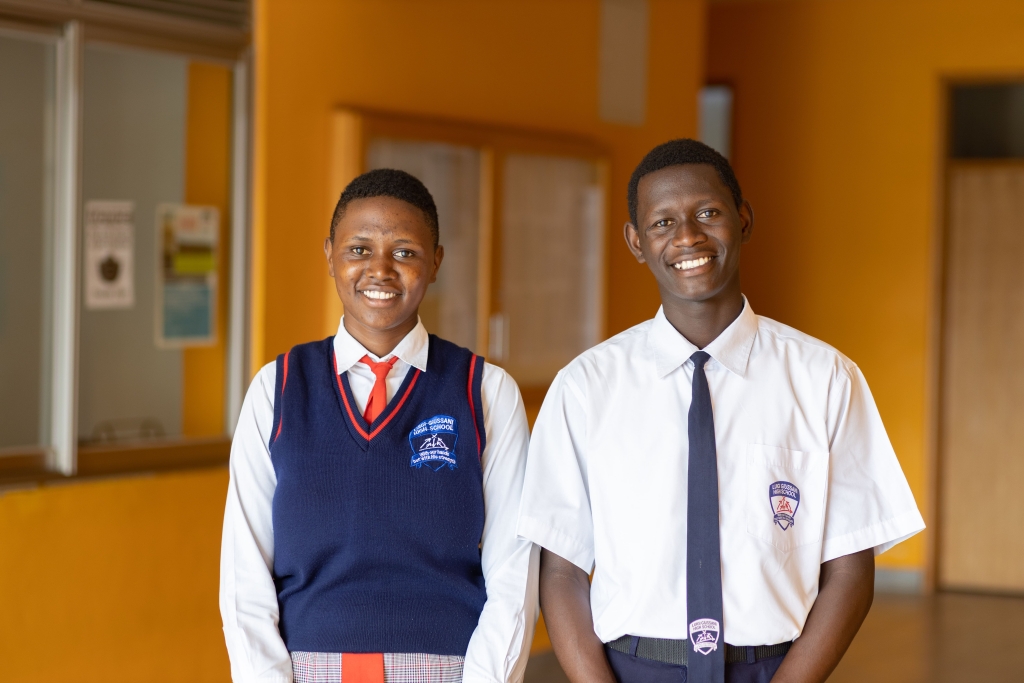
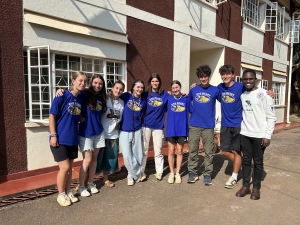
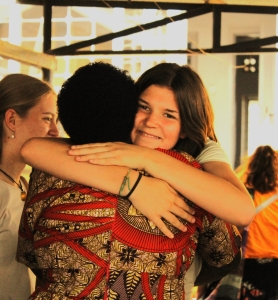
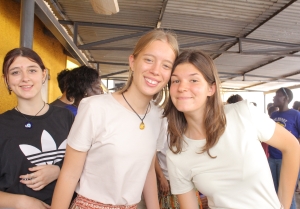
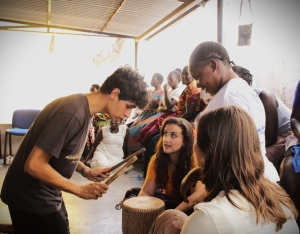
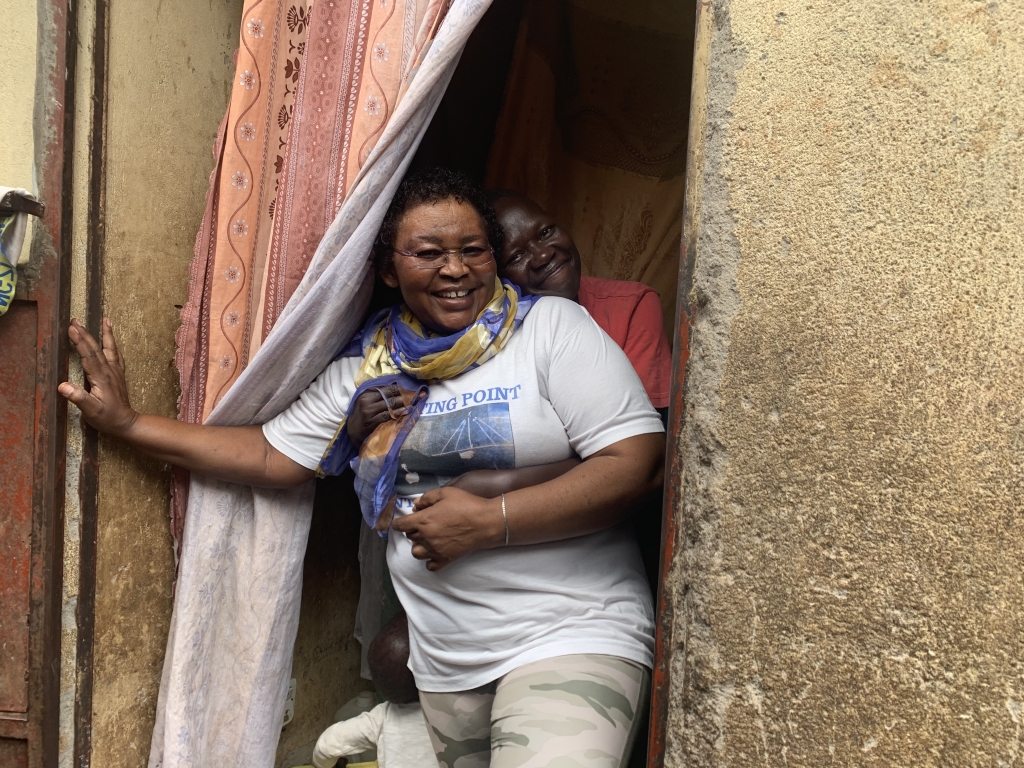
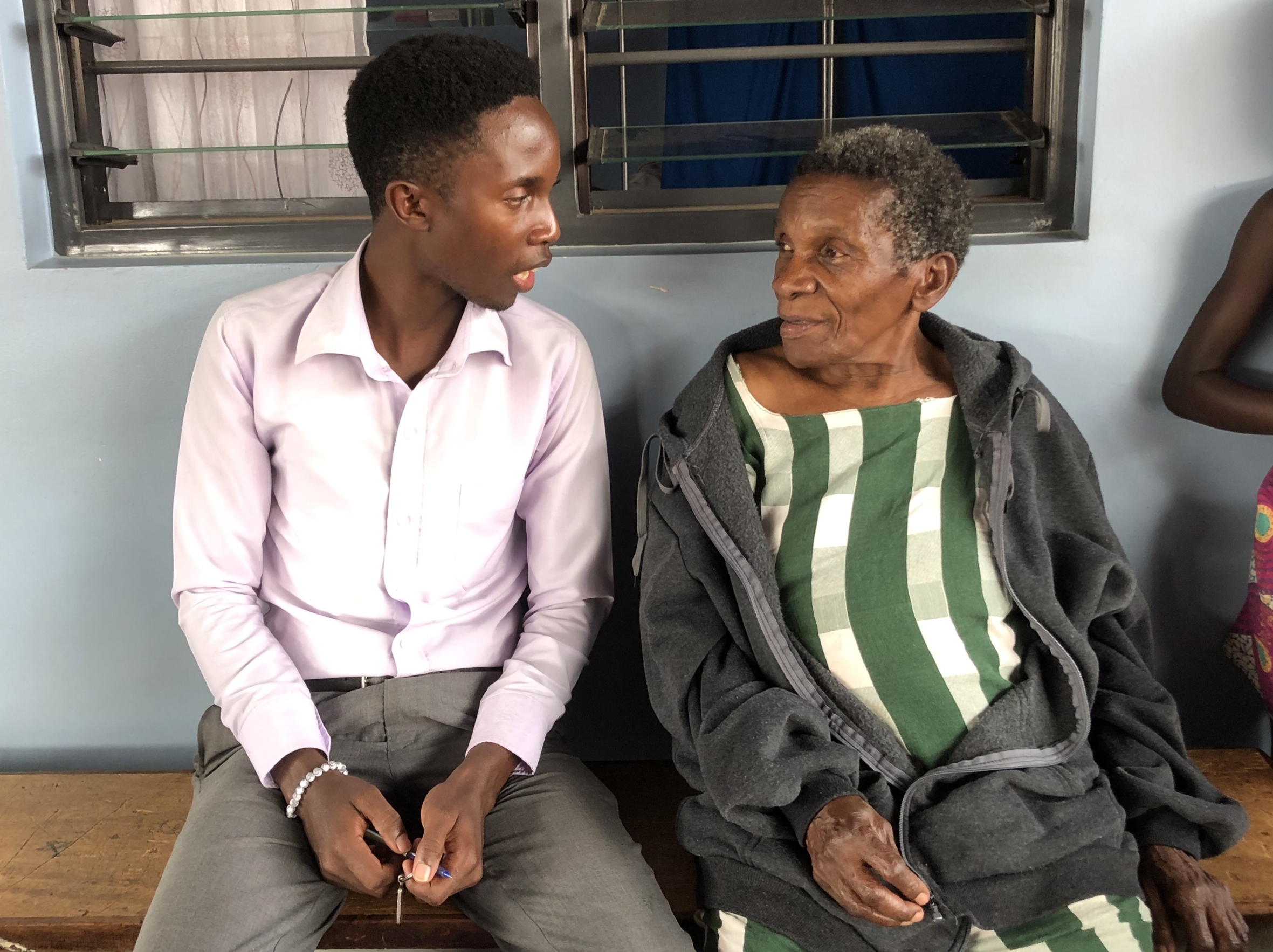


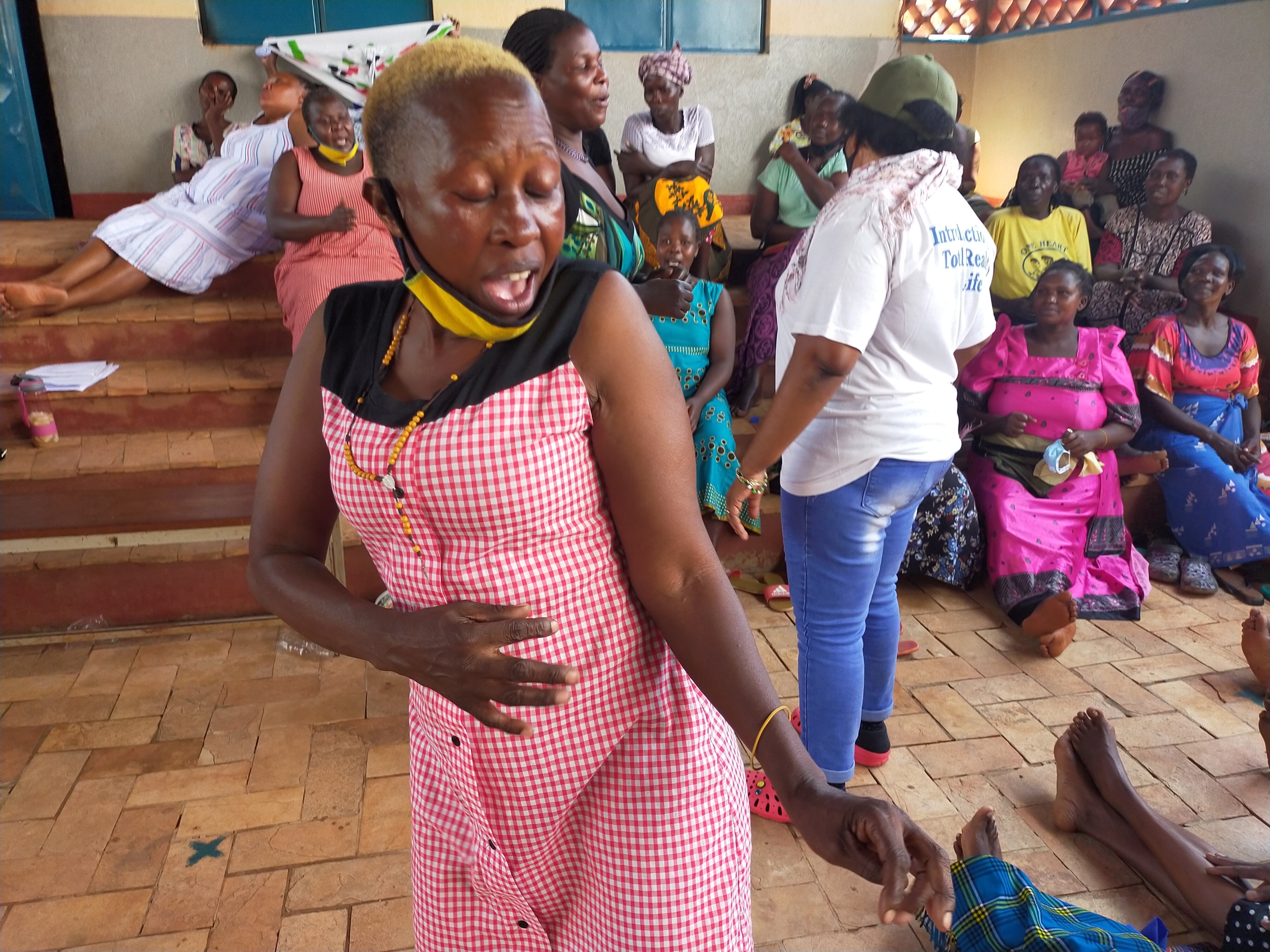
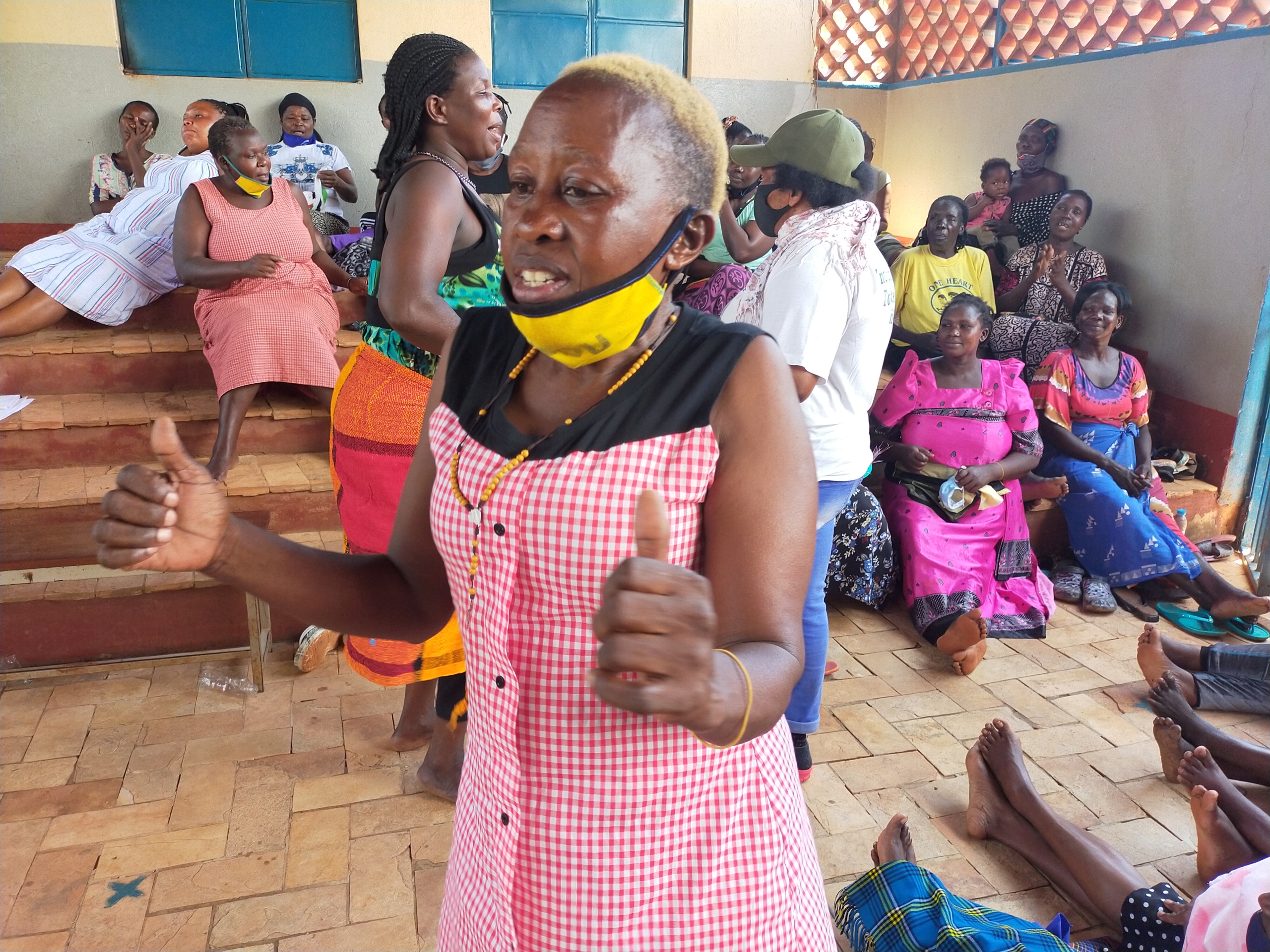
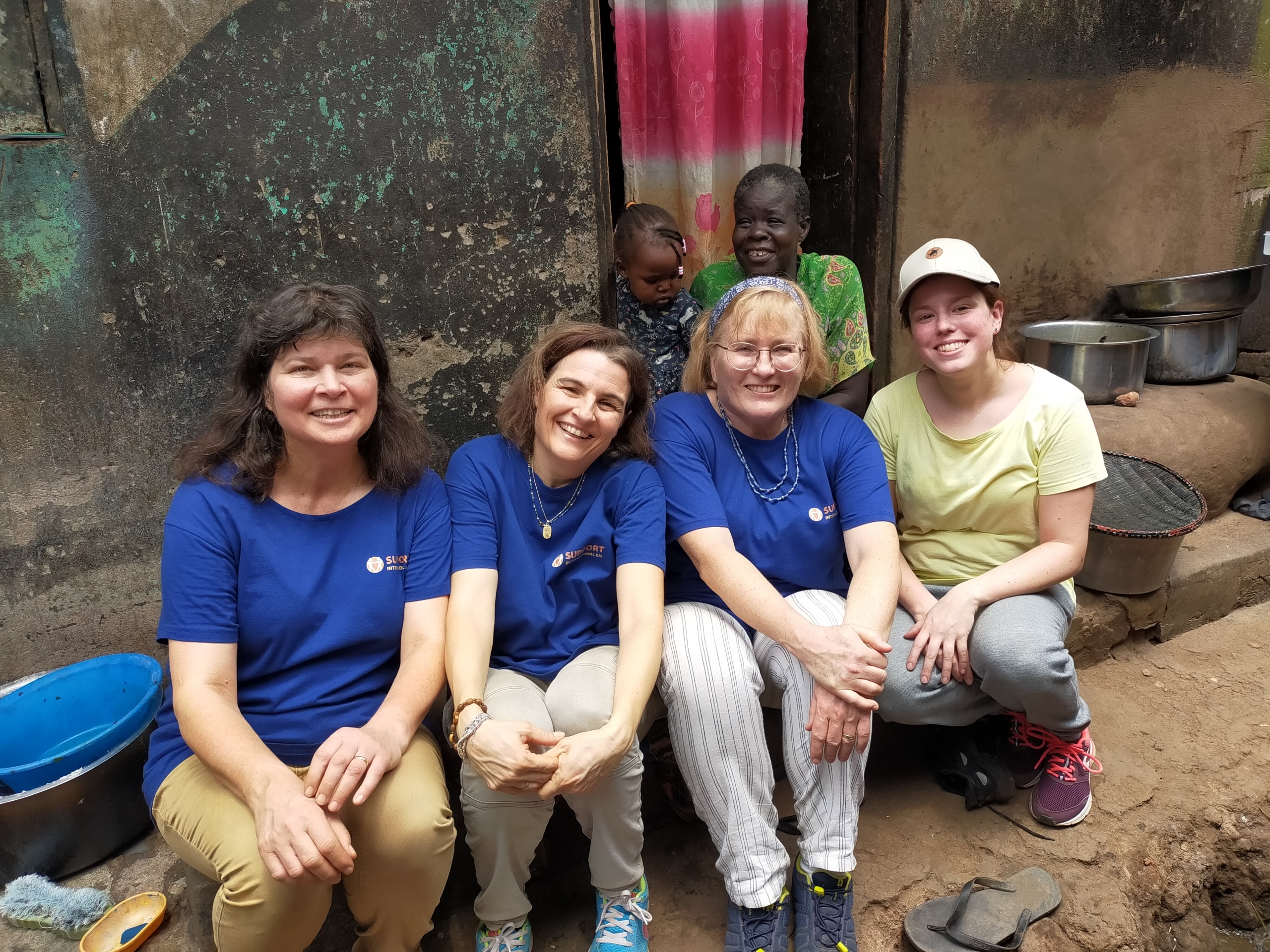
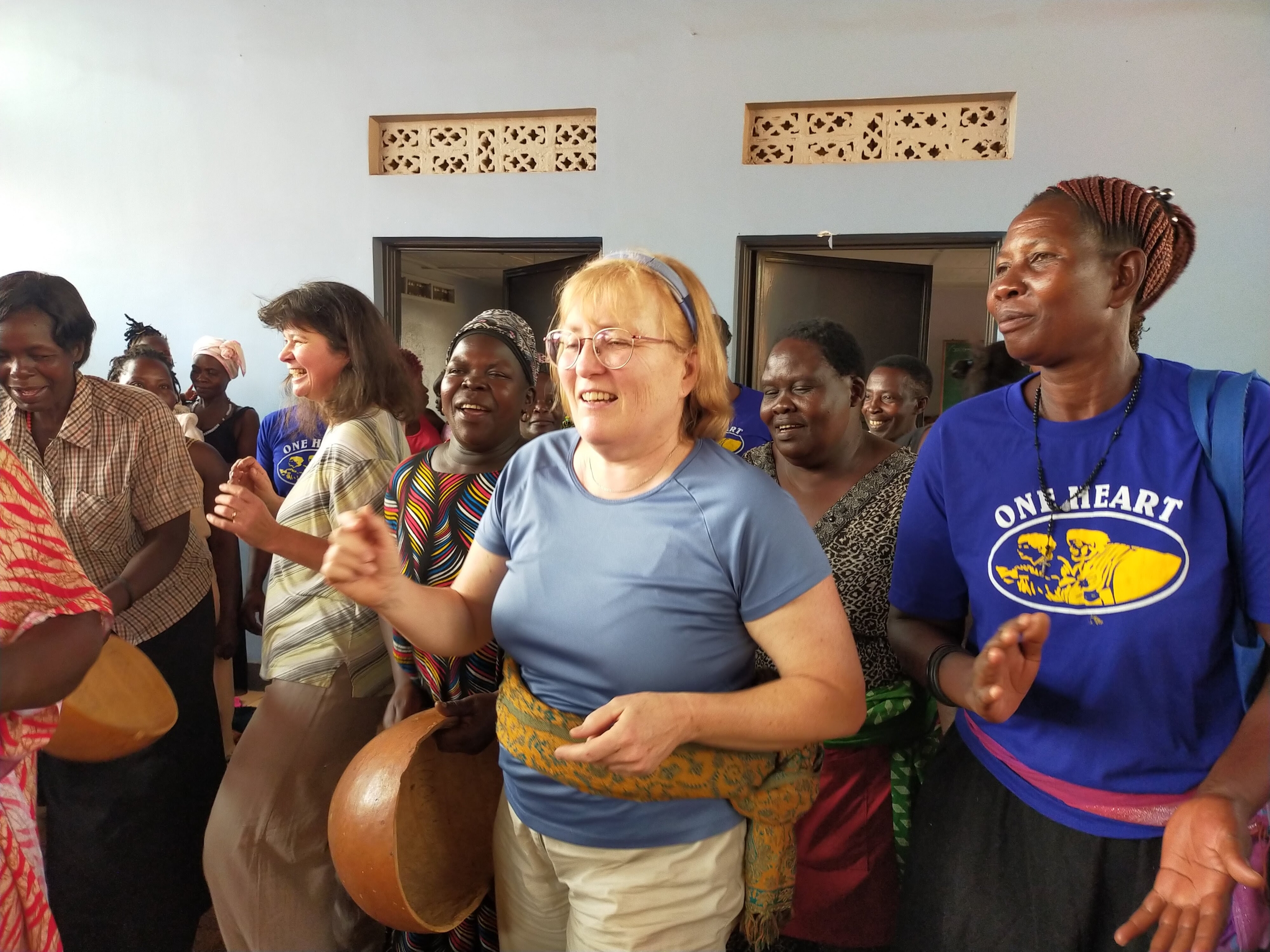
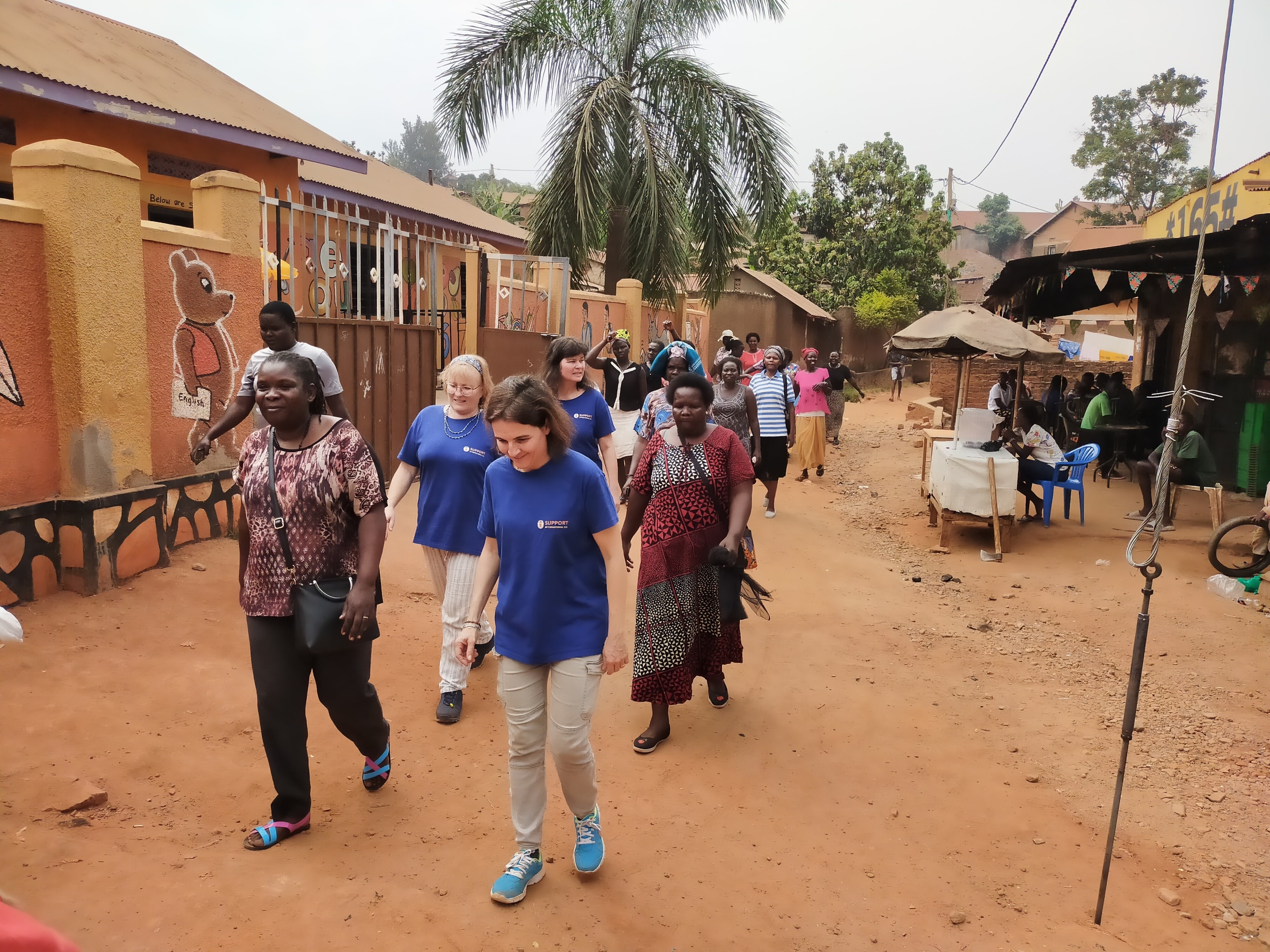
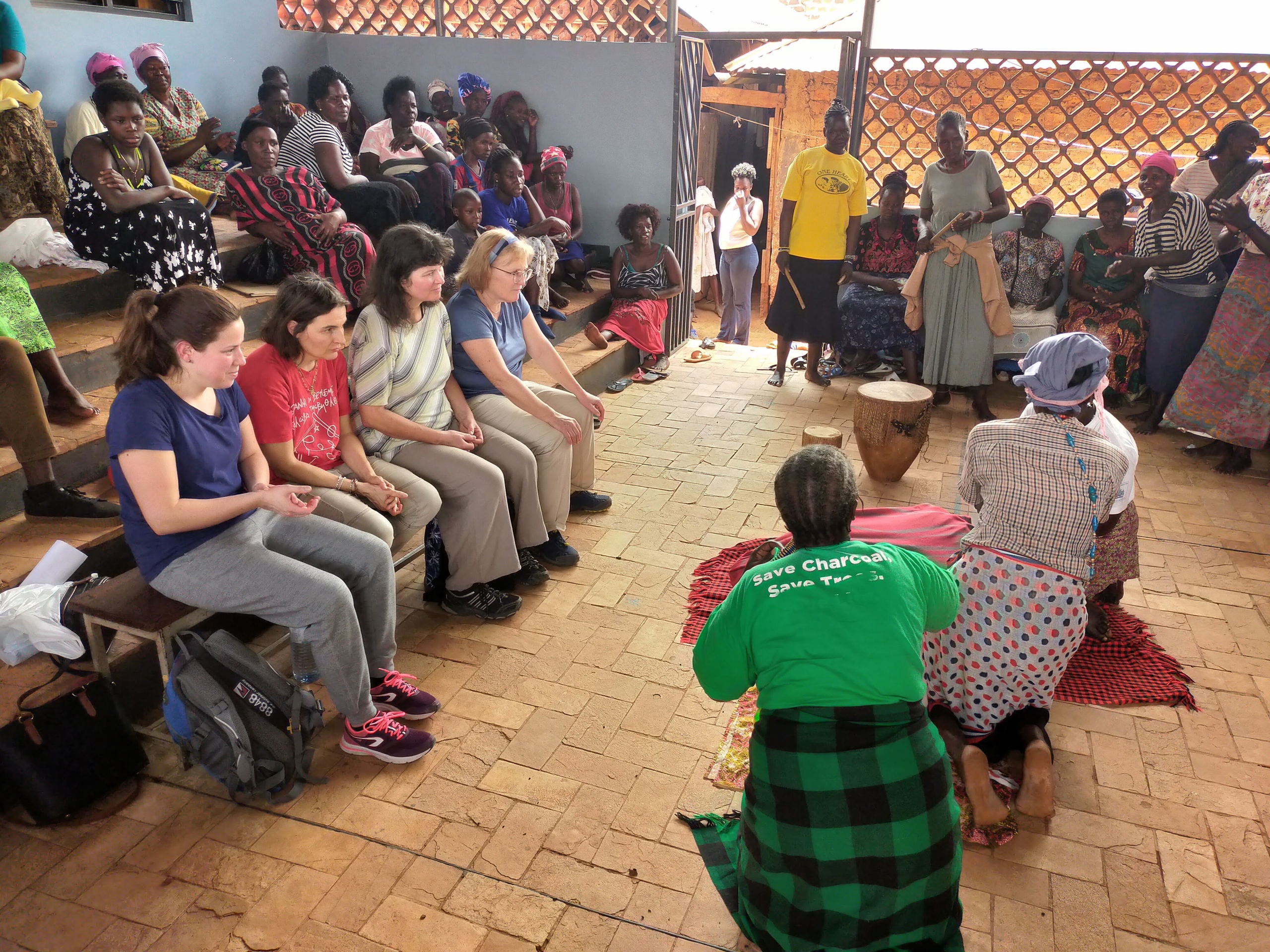
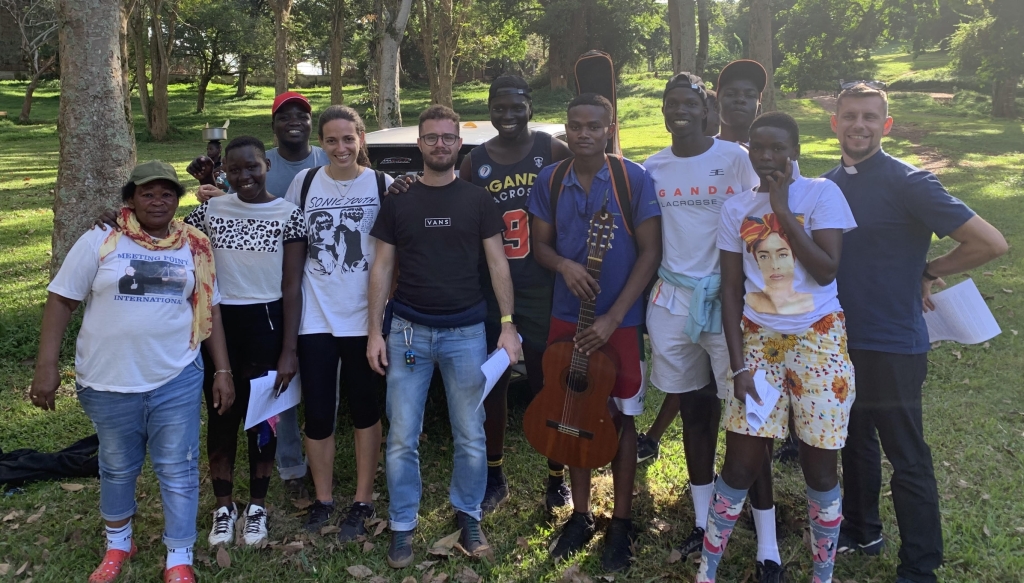
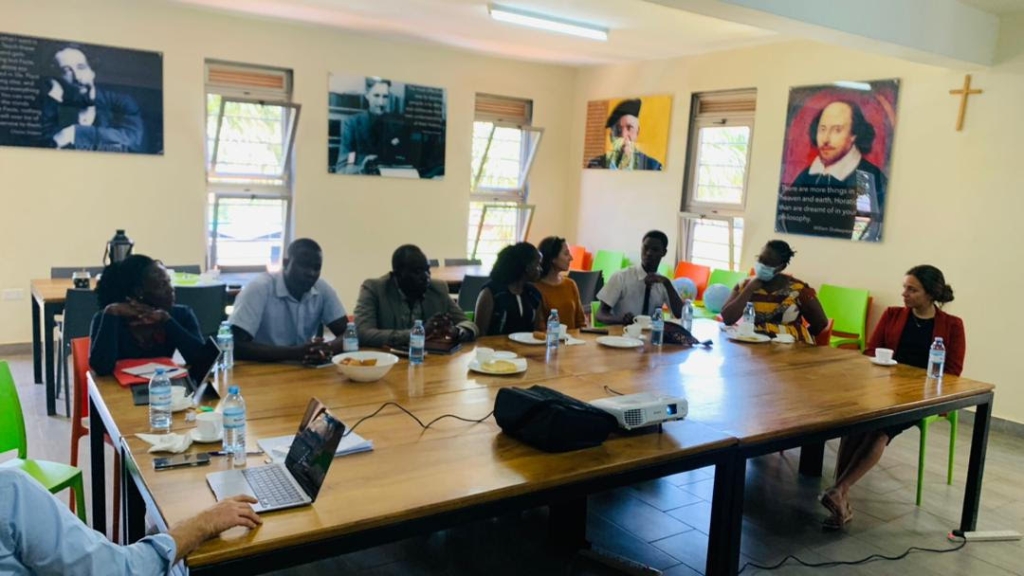
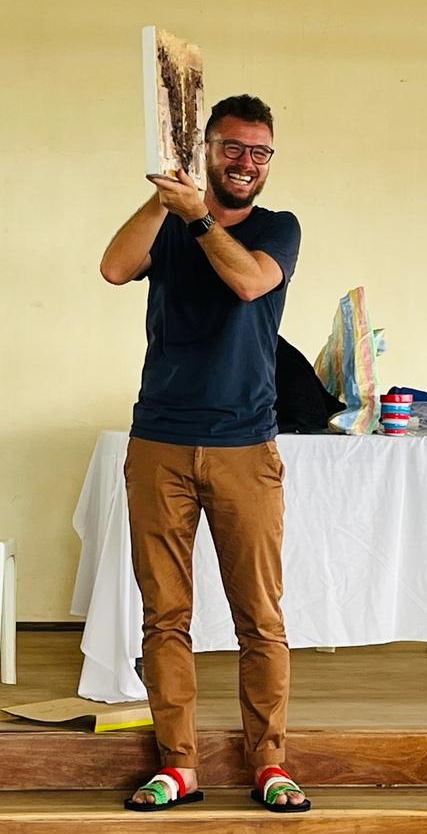
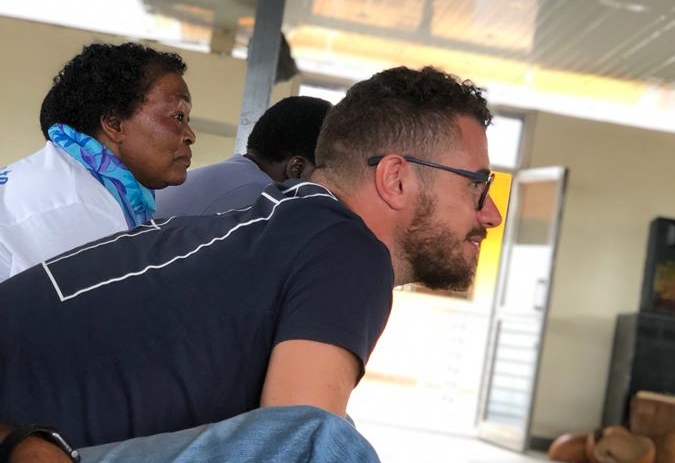
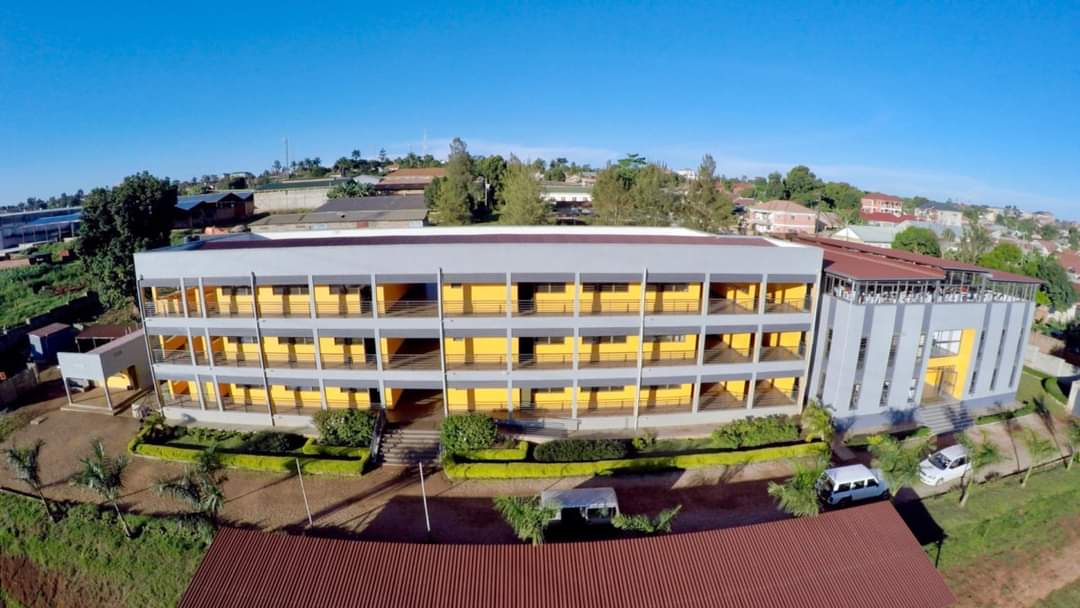
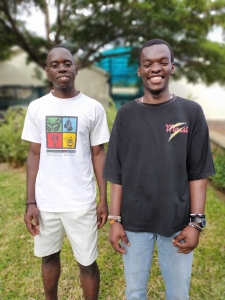
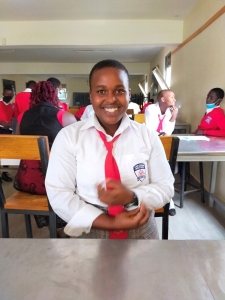
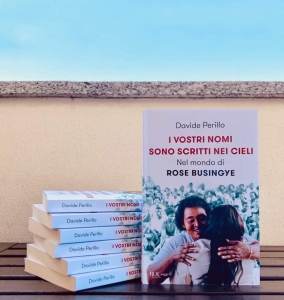

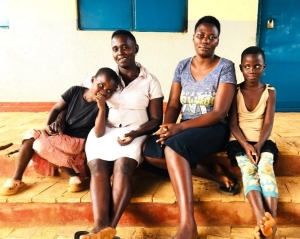
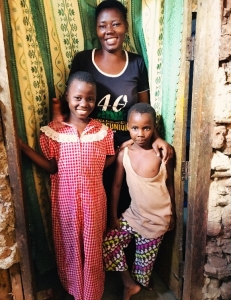
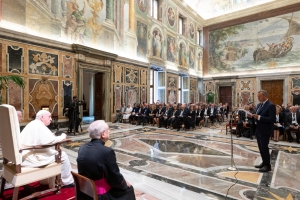 His Holiness,
His Holiness,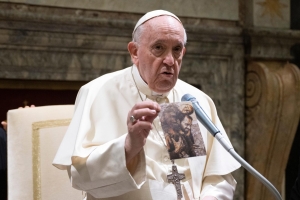
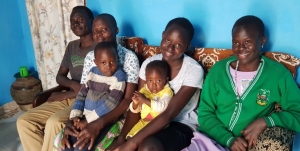
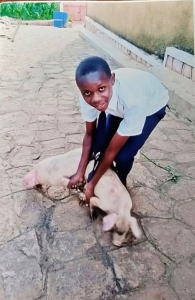
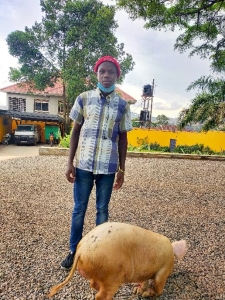
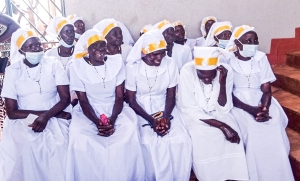
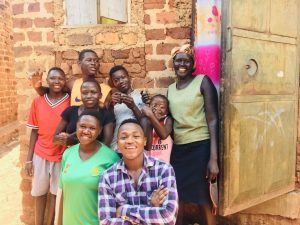
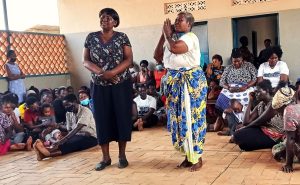
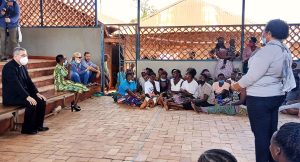
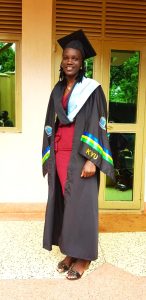 My name is Achan Priscilla, a 22-year-old teacher at Luigi Giussani Pre-primary and Primary school (LGPPS). I live with my two siblings Abraham, a 19-year-old, and Rovia, a 12-year-old in Acholi quarters. I just finished my degree at Kyambogo university this year where I was pursuing a bachelor’s degree of arts in education. I managed to get a first-class degree and am very happy about it. This would not have been possible without the support of my donors and Meeting Point International (MPI).
My name is Achan Priscilla, a 22-year-old teacher at Luigi Giussani Pre-primary and Primary school (LGPPS). I live with my two siblings Abraham, a 19-year-old, and Rovia, a 12-year-old in Acholi quarters. I just finished my degree at Kyambogo university this year where I was pursuing a bachelor’s degree of arts in education. I managed to get a first-class degree and am very happy about it. This would not have been possible without the support of my donors and Meeting Point International (MPI).